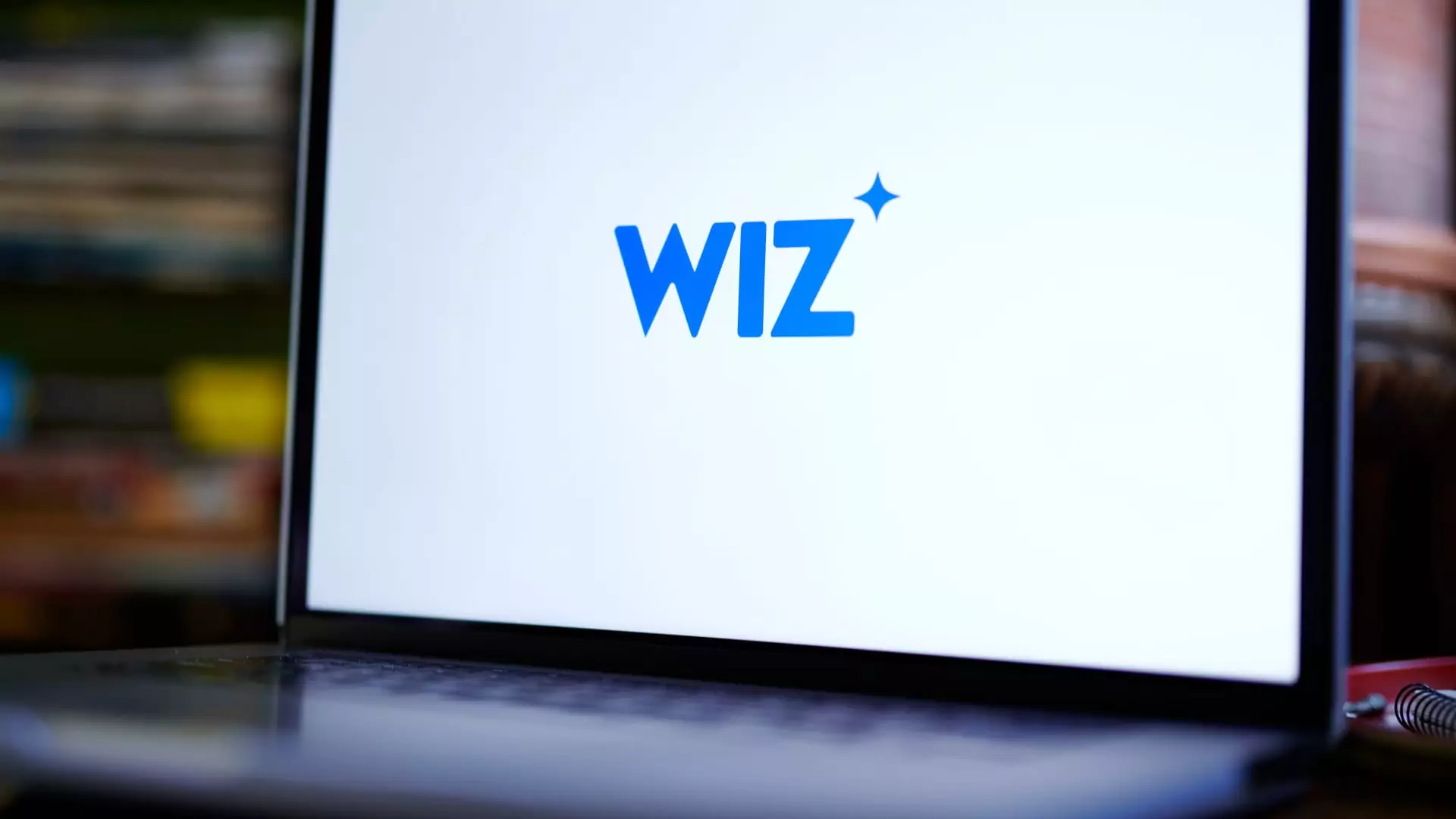In a rapidly evolving digital landscape, cybersecurity has emerged as a critical concern for organizations worldwide. One company that is making significant strides in this field is Wiz, founded by four Israeli friends who previously served in the 8200 intelligence unit of the Israeli Army. With ambitious plans to achieve $1 billion in annual recurring revenue (ARR) by next year, Wiz is positioning itself as a key player in the cybersecurity sector. Roy Reznik, one of the co-founders, recently shared insights into the company’s growth trajectory and future goals during an exclusive interview.
Wiz specializes in creating software that connects with cloud service providers such as Amazon Web Services and Microsoft Azure. The company’s platform is designed to scan cloud environments and pinpoint vulnerabilities, enabling organizations to proactively manage risks. This innovative approach to cybersecurity has attracted significant attention, evidenced by an impressive $1.9 billion in venture capital raised to date. Notably, Wiz turned down a staggering $23 billion acquisition offer from Google, deciding instead to maintain its independence and aim for an initial public offering (IPO).
In an age where startup acquisitions are commonplace, Wiz’s decision to decline the offer speaks volumes about its confidence in its potential. Reznik emphasized that although there have been numerous enticing offers to acquire shares of Wiz, the company believes it has what it takes to succeed on its own. The aspiration to shatter records as a public company adds an intriguing layer to its narrative.
The figures surrounding Wiz’s financial growth are compelling. From a mere $1 million in annual recurring revenue within the first 18 months, the company surged to $100 million in 2022, claiming the title of the fastest software company to reach that milestone. With the goal of doubling its current revenue to $1 billion by 2025, Wiz has set a clear roadmap. The company’s trajectory showcases not only its effective business model but also an understanding of the market’s demands.
Wiz’s expansion strategy hinges significantly on international markets, particularly Europe, where approximately 35% of its revenues originate. The opening of a new office in London reflects the company’s commitment to deepening its footprint in such a critical region. Reznik believes the U.K. market represents immense potential, particularly amid rising cybersecurity concerns after notable incidents within the National Health Service and Transport for London.
As the global cloud market is projected to reach $1 trillion, the burgeoning demand for security solutions poses a lucrative opportunity for Wiz. Interestingly, cybersecurity currently comprises about 4% of that market, equating to a substantial $30 billion potential sector. This figure underscores a growing urgency for organizations to secure their cloud infrastructures, which presents a favorable environment for a solutions-oriented provider like Wiz.
In Reznik’s observation, the interest from major retail and banking sectors in the U.K. indicates a fertile ground for growth. Companies like ASOS and Revolut have recognized the value of Wiz’s offerings and have become customers, further validating the company’s market approach. As cyber threats continue to evolve, organizations are keen to partner with cybersecurity firms that can offer reliable solutions.
As Wiz marches towards its ambitious targets, it seems well-poised to navigate the challenges of a competitive market. The decision to remain independent can be interpreted as a sign of confidence in both its product and its leadership. By concentrating on achieving its revenue goals and expanding its international presence, Wiz is crafting a narrative that is attractive not just to investors but to potential customers as well.
Wiz stands at a pivotal junction in its development. The company’s journey from a nascent startup to a billion-dollar revenue target represents more than just financial growth; it symbolizes a commitment to enhancing cybersecurity in a world increasingly reliant on cloud solutions. The efforts taken today by companies like Wiz will likely pave the way for a secure digital future, where organizations can operate without the looming threat of cyber intrusions. With an eye on independence and a robust growth plan, Wiz’s endeavor to connect and protect our cyber landscapes is commendable and deserves attention as the company prepares to tackle the next stage of its evolution.

